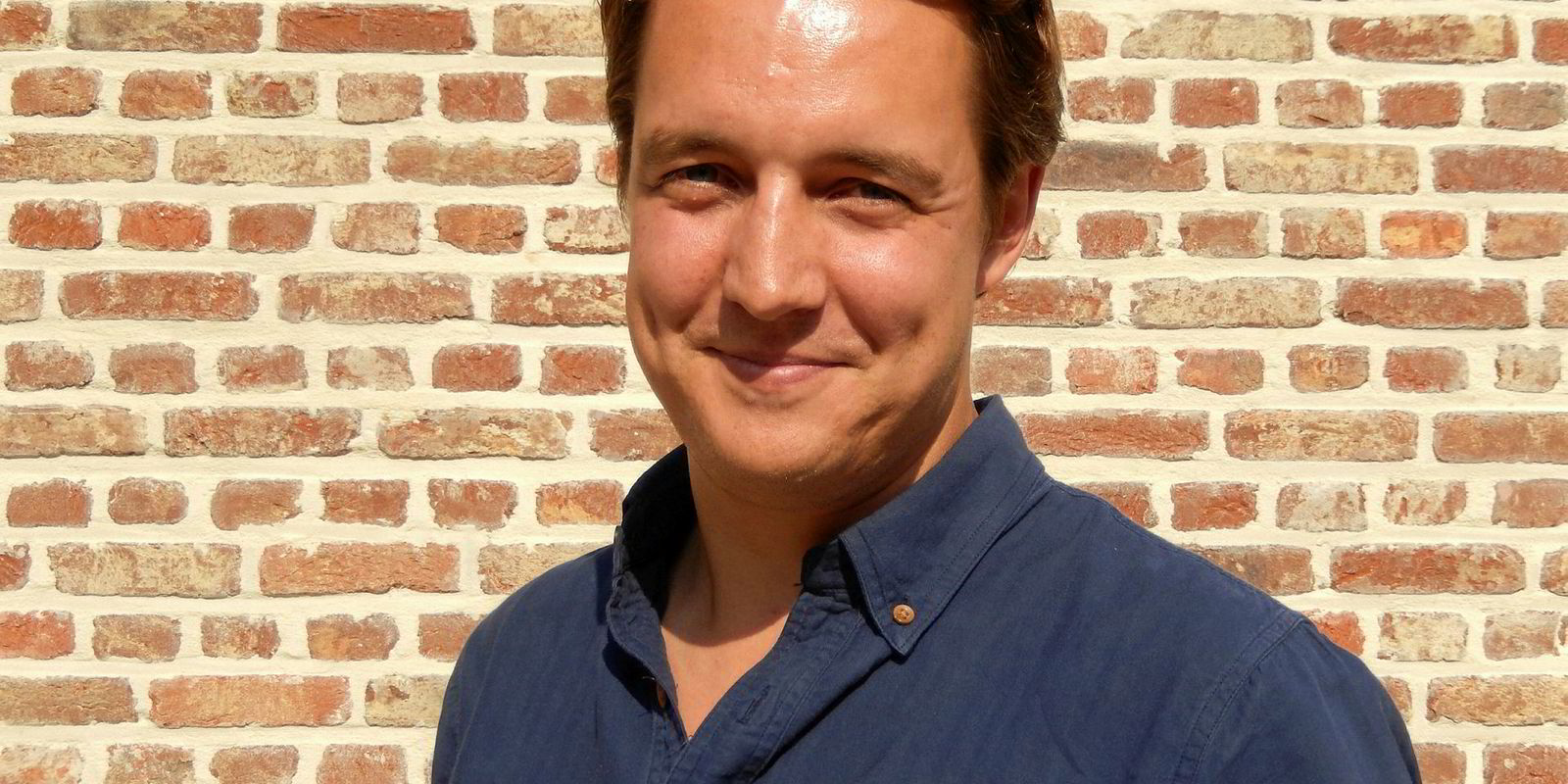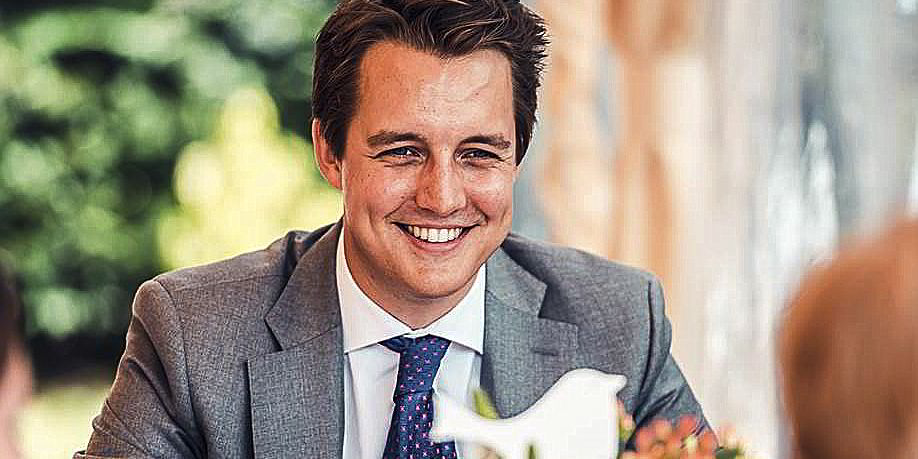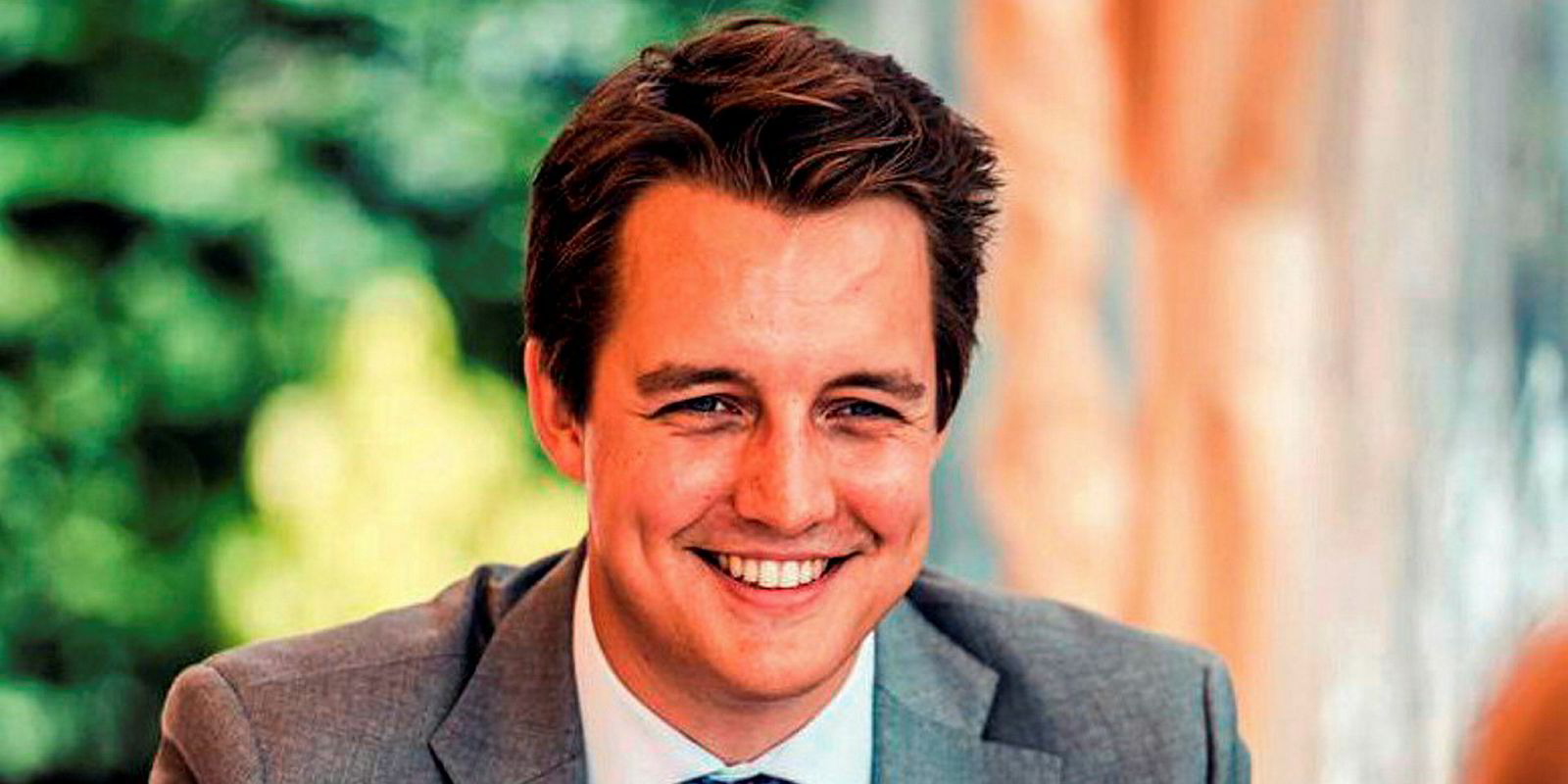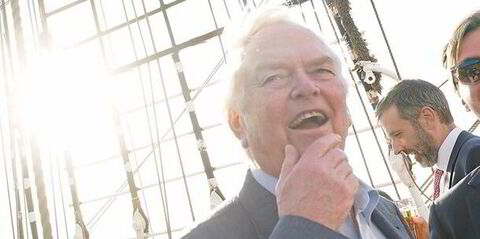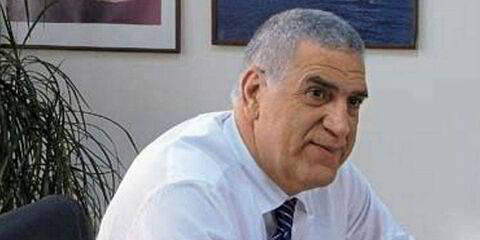Basile Aloy is enjoying life since returning to Belgium. He can tell you the best place to view the Antwerp skyline on a summer’s evening and where to go to get a decent plate of moules-frites.
And, not surprisingly for someone who has named his shipping company after a goddess of wine, he will also recommend the best wines to drink.
For Aloy — whose family runs the Avignonesi vineyard in Tuscany — knows a thing or two about wine. He could have made it his career, having studied winemaking and viticulture in Bordeaux.
Instead, the 30-year-old has opted to make his way in the shipping business. As part of the seventh generation of the Saverys clan, that appears to have been his destiny.
Today, Aloy works out of a 19th-century building that his family owns in a district to the south of Antwerp close to where he grew up. It’s where he feels most at home.
“I feel quite happy in my provincial little town of Antwerp. The quality of life here is fantastic. When I left the winery, I was 26 and I was living in the countryside, and it was not something for me.”
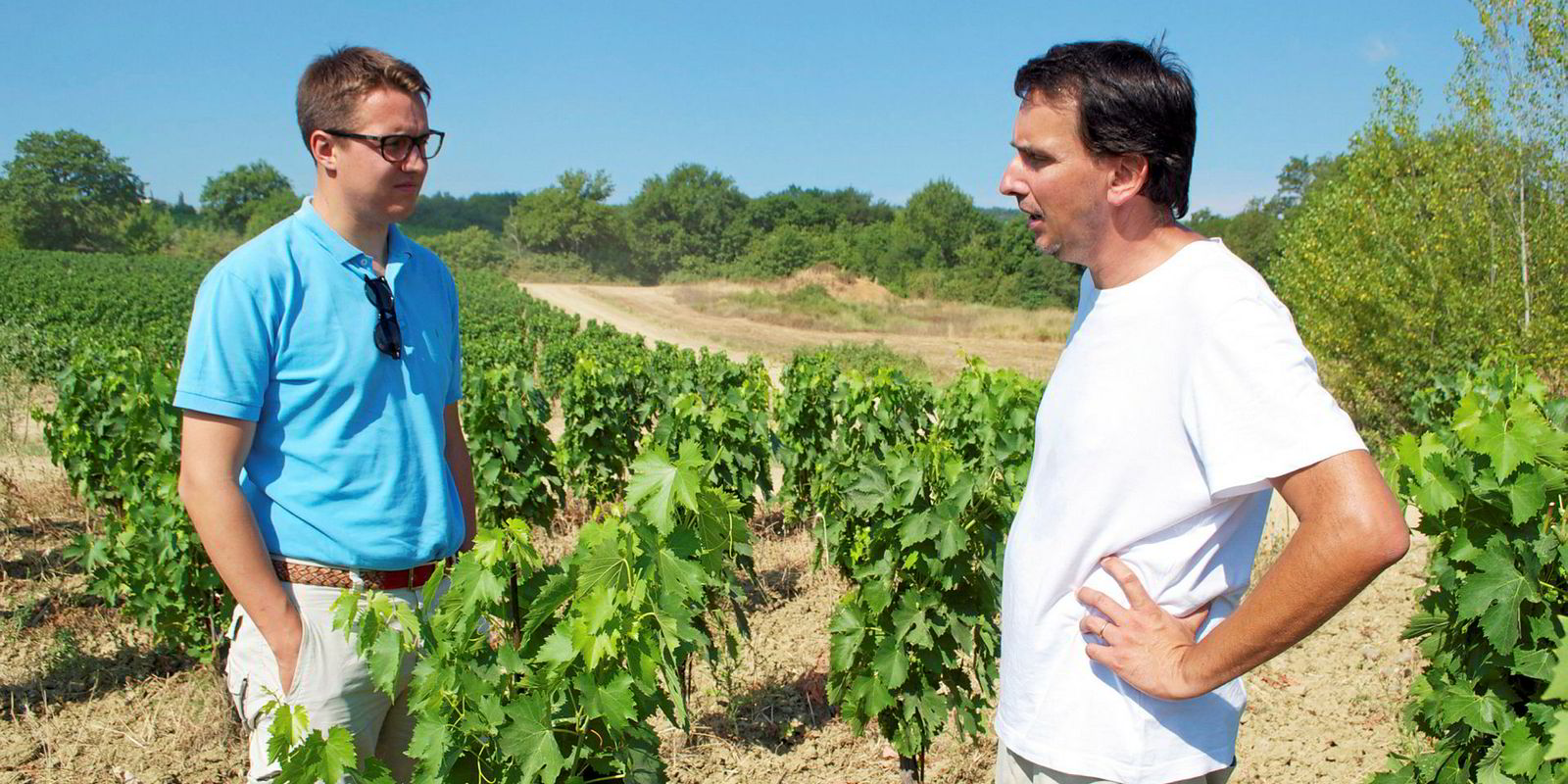
Aloy got serious about a career in shipping four years ago when he began working as a shipbroker in Switzerland. Even now, he confesses to missing the adrenalin rush of fixing a ship.
In early 2016, he established his family’s own shipowning operation, EBE, named after the Greek goddess of wine (Ebe, the daughter of Zeus and Hera, was the cupbearer for the gods and goddesses of Mount Olympus, serving their nectar and ambrosia, until she settled down to become Mrs Hercules).
Today, EBE is sitting pretty. It owns a fleet of six debt-free bulkers mostly acquired at the trough of the market.
Four of the vessels — a capesize, a kamsarmax and two ultramaxes — are on the water. Two more are to be delivered from Oshima Shipbuilding in Japan next year.
“We are in a luxurious position,” Aloy tells TW+. “We’ve had two years with almost no issues.”
That is good news for the family holding company Victrix, headed by his mother, Virginie Saverys. Victrix also has a significant stake in Euronav, although it recently slipped below 5%. Aloy says his family backs the Euronav management and regards its acquisitions of other tanker companies, including Gener8 Maritime, as a smart move.

“We also believe tanker hire rates will go up, maybe not now, but it will happen,” he says. “One thing you should have in shipping is patience.”
EBE, Euronav and Avignonesi are the pillars of “a real family business”, he adds.
His sister, Eline Aloy, manages the wine business from the same building, overseeing the management of wine bars in London and Antwerp. Her latest creation is a wine label called Ventisei (Italian for “26”) making young organic wines with grapes from Avignonesi.
Shipping accounts for just half of the family assets, and there are no plans to increase that proportion in its portfolio. Instead, the family is examining diversification in other areas.
“We are looking at investment in sustainable ecological projects as a hedge for the shipping and tanker industry,” Aloy says.
That is typified by the recent acquisition of a shareholding in Turbulent, a Belgian start-up that operates micro-hydropower plants.
“It’s not really on the worldwide radar, but we think it’s interesting to diversify. Both my mother, my sister and myself have a strong feeling we have to do something in the 21st century.

“Our winery is fully organic, fully biodynamic. We’re trying to do everything we can to reduce CO2 exhaust at the winery.”
Aloy argues that a similarly radical approach to emissions has to be taken by the shipping industry.
“Shipping is moving from high-sulphur to low-sulphur fuel oil, and that’s great. But we need to start moving a lot further and faster. Because I think we’re heading for a disaster. We need an energy revolution.”
He dismisses the idea of scrubbers as a long-term solution.
“Building a scrubber is taking a position on bunkers and bunker pricing, and the differential between high-sulphur fuels and low-sulphur fuel.
“And I’m not a bunker player. I’m a shipowner. I’m an incomplete asset player on the shipping side, but I’m not going to take a position on the bunkers.
“I don’t see why shipowners have to take a position on 60,000 ships afloat when there are thousands of refineries on land that can solve it for us.”
I don’t see why shipowners have to take a position on 60,000 ships afloat when there are thousands of refineries on land that can solve it for us
Aloy applauds efforts by his cousins at Alexander Saverys-led Compagnie Maritime Belge (CMB) to replace diesel with hydrogen as a fuel for marine engines.
“That’s cool,” he says. “I think they are onto something and I have immense respect for them for trying. They’ve been through the worst market in the last 20 years and nevertheless they decide to allocate equity and time to the project.”
Like his cousins at CMB and Exmar, which manages two of EBE’s vessels, Aloy was given responsibility at a relatively young age. He was just 28 when he started EBE, although there were limits to what he was allowed to do.
“I could take care of the day-to-day decisions. But whenever it’s about a long charterparty or buying or selling a ship, it automatically becomes a communal, family decision. The beauty of it is they gave a lot of time to find out and to learn and make mistakes.”
Aloy has been able to leverage the relationships built by the previous generation over many years.
“Shipping is not only about money,” he says. “It’s about the goodwill there is in the industry towards you.

“That has allowed me to pick up the phone to certain people and ask some questions point blank and be able to have very quick replies. I think that’s been invaluable.”
Having a mother who was once secretary-general of CMB meant help was on hand for legal issues. It was also handy having former dry cargo veteran Maximilien de Zarobe as a stepfather.
“That’s been an advantage. There were times in the early days when I’ve had Max on the phone 12 times and I’d call him up at 4am in the morning,” Aloy says.
“We’d sometimes disagree. Especially in the beginning, I had my foot on the accelerator, he would tend to brake a little more.”
But Aloy believes shipping has changed since the older generation ran the show.
“It’s become very much a trader environment, where guys who would trade stocks would trade ships today. And I think the atmosphere was a bit more technical 20 years ago.”
Some things remain as important as ever, such as the need to minimise counterparty risk. That has led EBE to focus on what it believes are good charterers in the form of Rio Tinto and Pacific Basin.“You talk to some of our charterers, you really feel like they’re in it for the long haul,” he says.
So where will EBE go from here? Aloy says no purchases are planned. “If anything, we might sell something. I think we are perhaps also quite bullish. Maybe we’re too hungry.”
But then he adds: “We’re being patient and we’re waiting it out.”
